Have you not been wondering as to how your banking institution is handling your account information considering that not only a hundred of accounts are on their safety storage? Or has it not come perplexing on your end to determine as to how a government institution efficiently carries the manipulation and control of every citizen’s personal data submitted as his social security information? Well, wonder no more! The efficiency in controlling this information is all because of the database management systems or DBMS that were developed and made to simplify these relatively tremendous and strenuous information related works.
The use of the Relational Database Management Systems or RDBMS technology is very well manifested and exercised on a corporate setting where large amounts of information is needed to be systematically and coherently handled and manipulated. Information being as powerful as it is, requires that it needs to be efficiently controlled. Corporations and business entities rely too much on the information at hand and how they are being handled because these are the same information that makes up what the corporation stands for. This is the same reason why a lot of companies are relatively spending millions of dollars in order to have data management software to ensure that data/information are properly secured and effectively utilized.
With the mushrooming of numerous database systems design on the software market, a lot of business owners are skeptical on which one truly boasts the most effective mechanism in database management. Nonetheless, with the evolution of database systems, a more powerful and efficient one existed — the relational database management systems. With this new database system, data is being systematically arranged on a row and column — relatively on a table form — that shows the relationship between and among the data making it fairly easy and effective to control and manipulate this information. With this kind of system, it makes it pretty easy to organize, update, store, delete, insert, and retrieve any data on the database schema.
The concept of relational database management systems is credited to the remarkable idea of E.F. Codd, who bravely introduced it on his published material entitled “A Relational Model of Data for Large Shared Data Banks” back in 1970. With this theory, it widely opened people with the new, fresh, and vast ideas on how organizational entities, especially those that are into handling huge amount of information on their information bank, can practically and effectively manage its information resource. With the strong and powerful capability of the Relational Database Management Systems at hand joined together by an equally powerful Structured Query Language mechanism, the manipulation of data and the elimination of data redundancy, which is a great challenge for most database managers, can come on almost invisible presence.
To date, Oracle and MS SQL Server programs are some of the leading and most trusted Relational Database Management System’s program products currently out in the market.
AWS.AMAZON
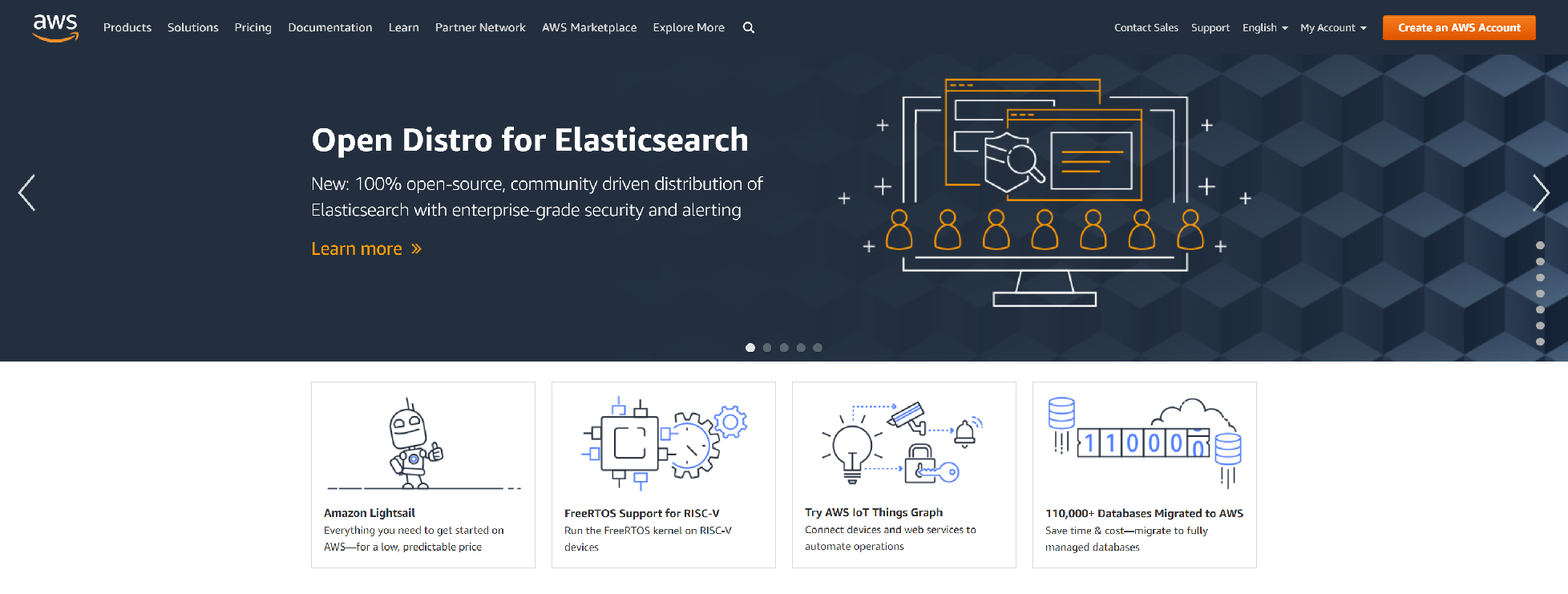
Amazon Web Services offers reliable, scalable, and inexpensive cloud computing services. Free to join, pay only for what you use.
Benefits:
- Easy to administer
- Highly scalable
- Available and durable
- Fast
- Secure
- Inexpensive
SAP
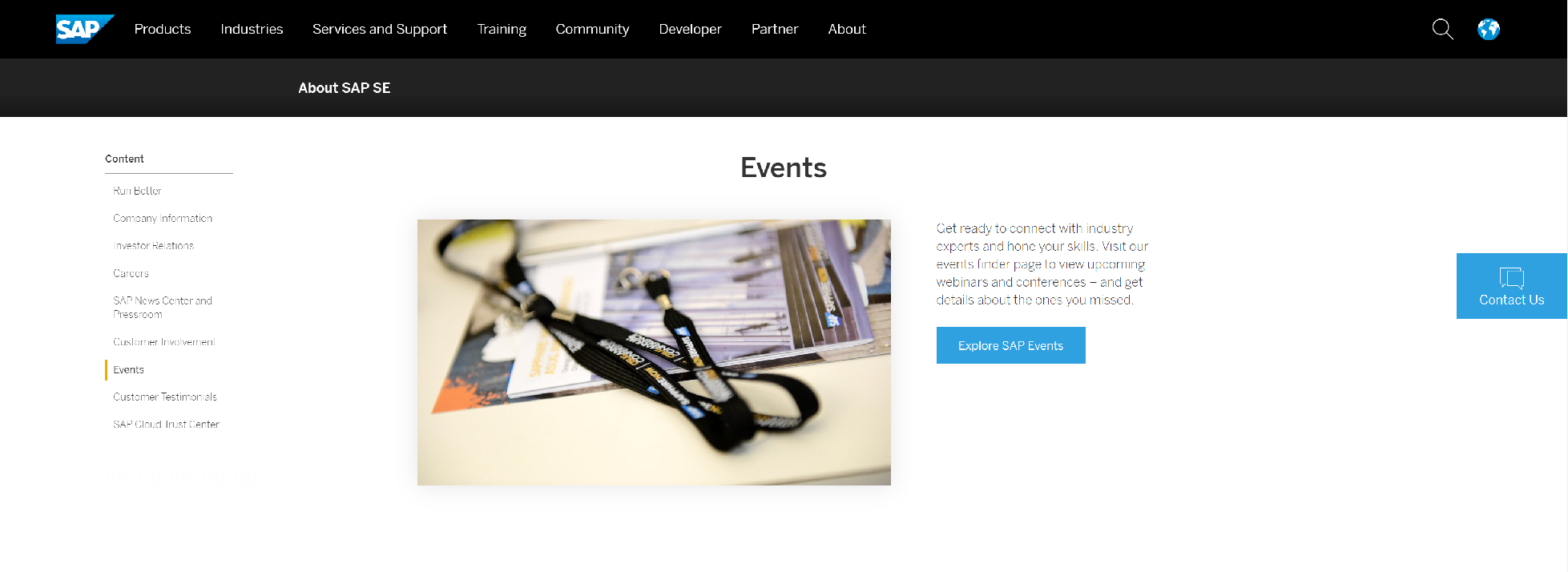
Rapidly design and deploy embedded database applications that run remotely on servers, laptops, handhelds, and smartphones with SAP SQL Anywhere relational database management system (RDBMS) solutions.
Benefits:
- Optimize data management
- Empower greater mobility
- Simplify service
Key Capabilities:
- Strong encryption
- Data synchronization
- Instant insight
- Manage data and databases in the digital enterprise
- Enhance enterprise agility with unified data
- Improve outcomes and operational efficiency
TERADATA
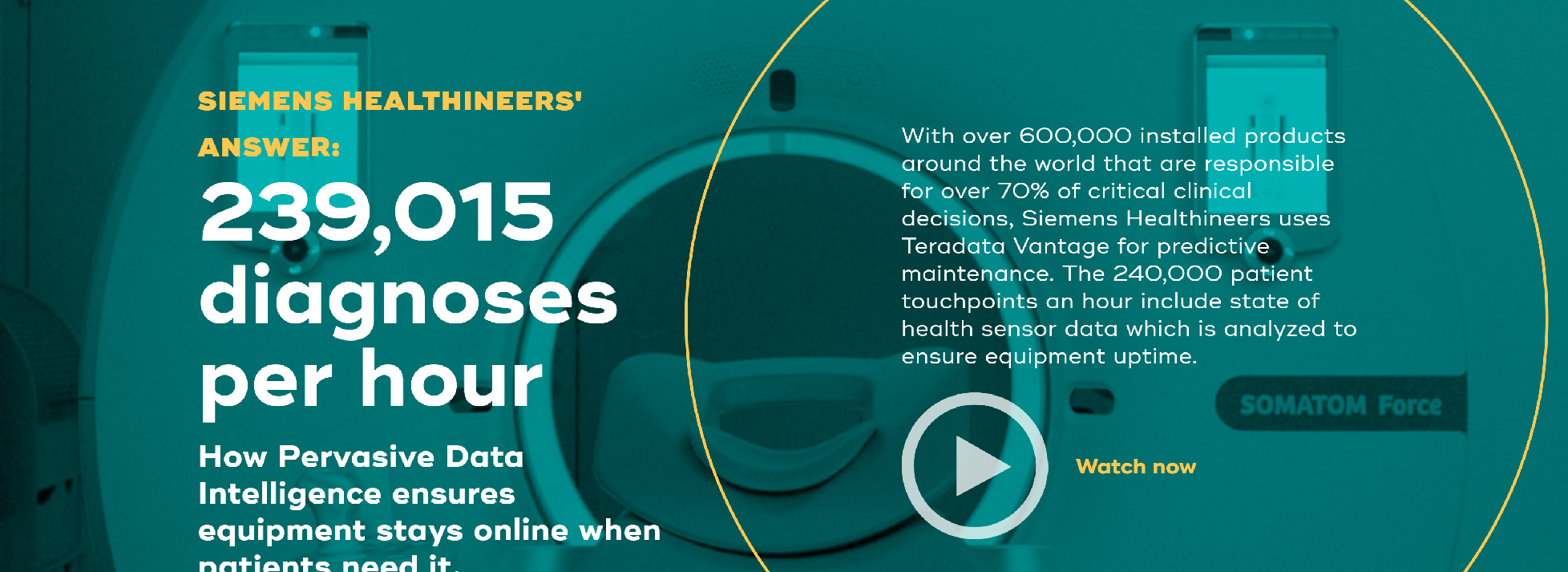
Teradata is the world’s leading provider of pervasive data intelligence, data and analytics solutions, and hybrid cloud products. Only Teradata leverages 100% of your relevant data with the speed, scale, and flexibility to deliver answers to what matters most to the success of your business.
Benefits:
- Get actionable answers faster
- Timely, accurate insights
- Driving analytics that matter
- Align workload and business priorities
1010DATA
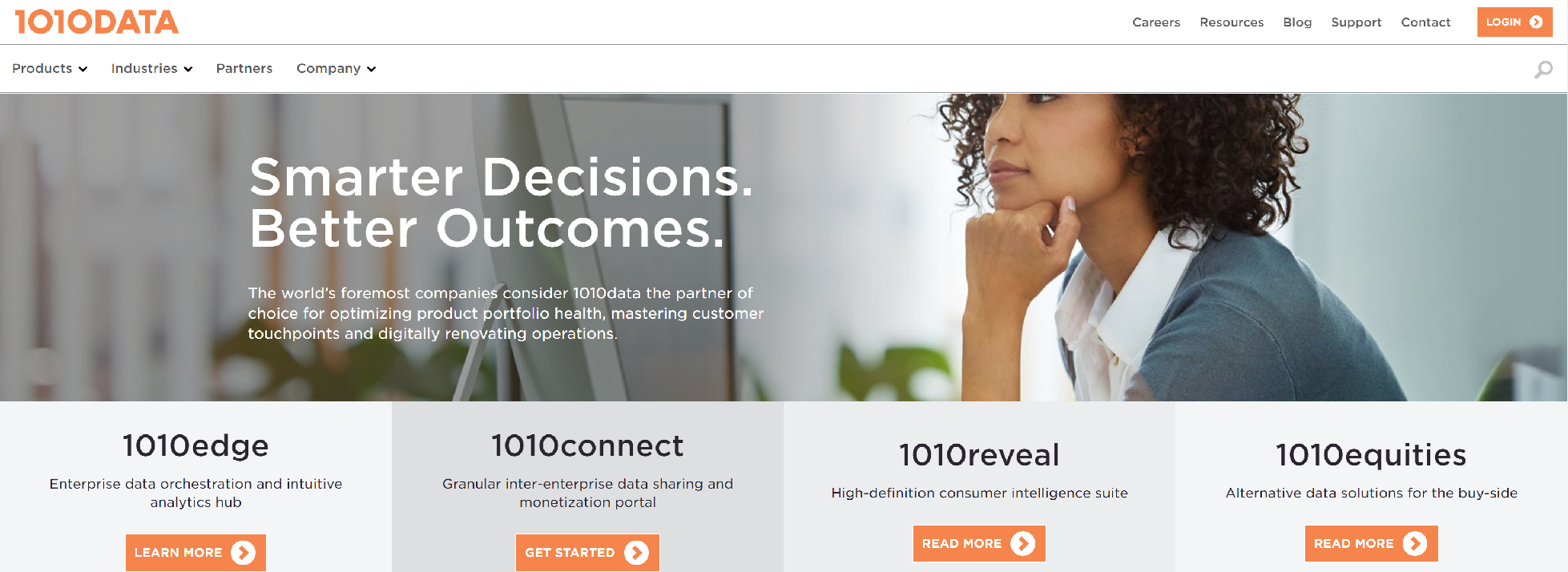
1010data offers the only enterprise-scale, self-service platform for data management, analytics and application building.
- A unified platform for company-wide data democratization
- Actionable insights at the right time, for the right decisions
- Powerful collaboration between you and your trading partners
TMAXSOFT

TmaxSoft is a global software innovator that delivers mainframe rehosting, RDBMS and middleware solutions to help companies leverage critical data.
- Reduce MIPS consumption on your mainframe
- Migrate legacy apps off your mainframe
- Achieve mainframe modernization and mainframe rehosting
- Simplify relational database management system (RDBMS) licensing
- Implement a simple and effective disaster recovery solution
- Maximize performance of alternative processors and architectures
- Acquire modern and flexible DevOps tools
MEMSQL
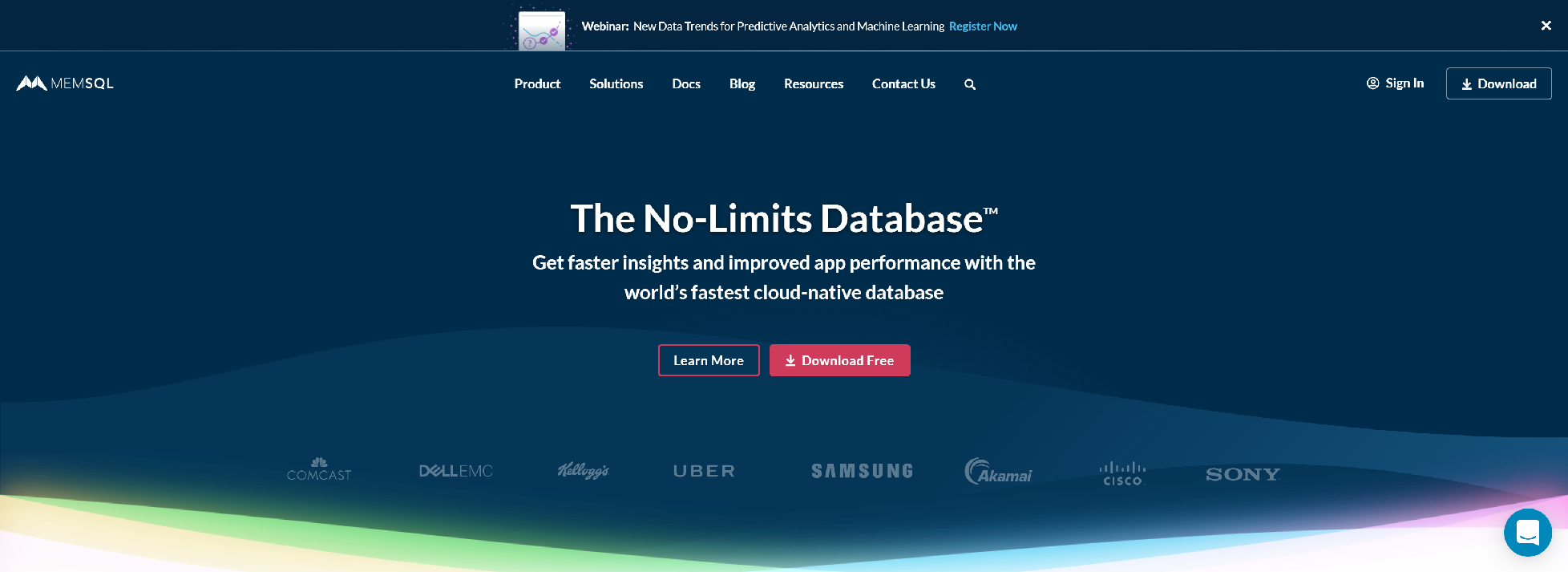
MemSQL is a modern relational database for cloud and on-premises that delivers immediate insights for modern applications and analytical systems.
- Maximum Performance for Demanding Applications
- Familiar SQL & Relational DBMS at Big Data Scale
- One Database for Every Workload and Any Infrastructure
CLICKHOUSE
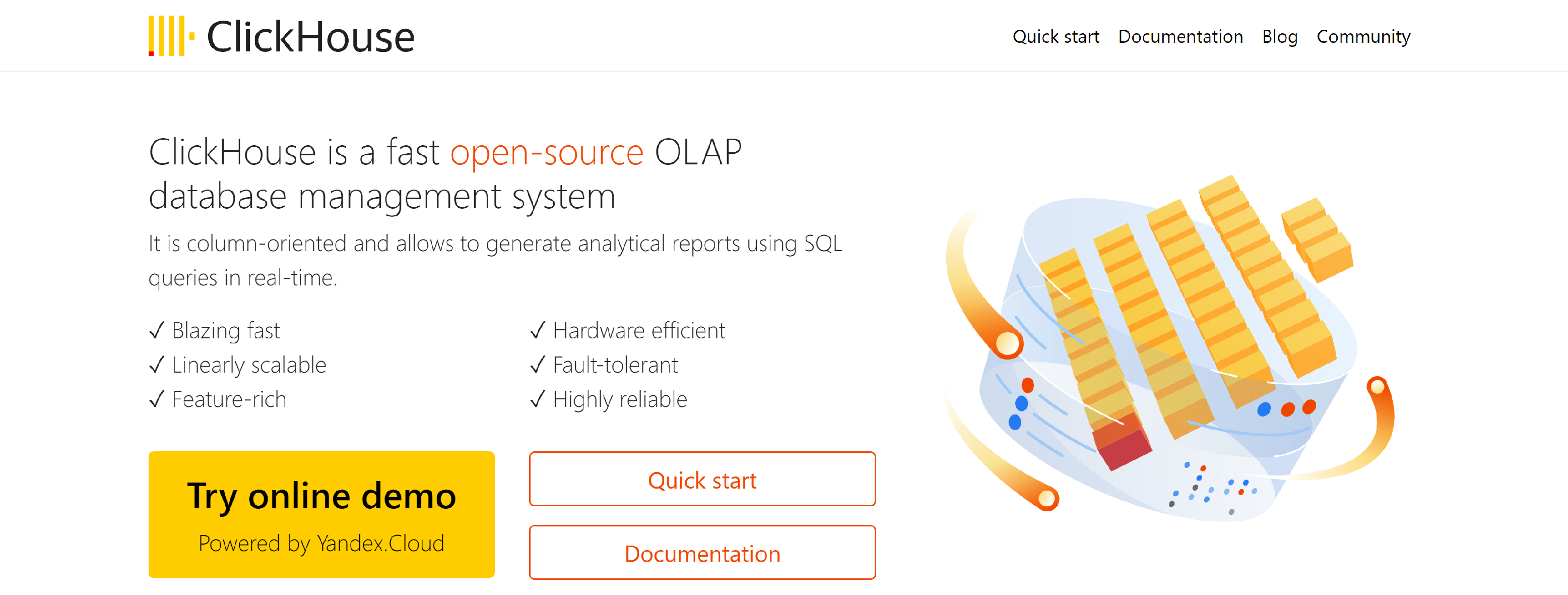
ClickHouse is an open source distributed column-oriented database management system that allows generating analytical data reports in real time using SQL queries. Сreated by Yandex ClickHouse manages extremely large volumes of data in a stable and sustainable manner.
Features:
- True column-oriented storage
- Vectorized query execution
- Data compression
- Parallel and distributed query execution
- Real time query processing
- Real time data ingestion
- On-disk locality of reference
- Cross-datacenter replication
- High availability
- SQL support
- Local and distributed joins
- Pluggable external dimension tables
- Arrays and nested data types
- Approximate query processing
- Probabilistic data structures
- Full support of IPv6
- Features for web analytics
- State-of-the-art algorithms
- Detailed documentation
- Clean documented code